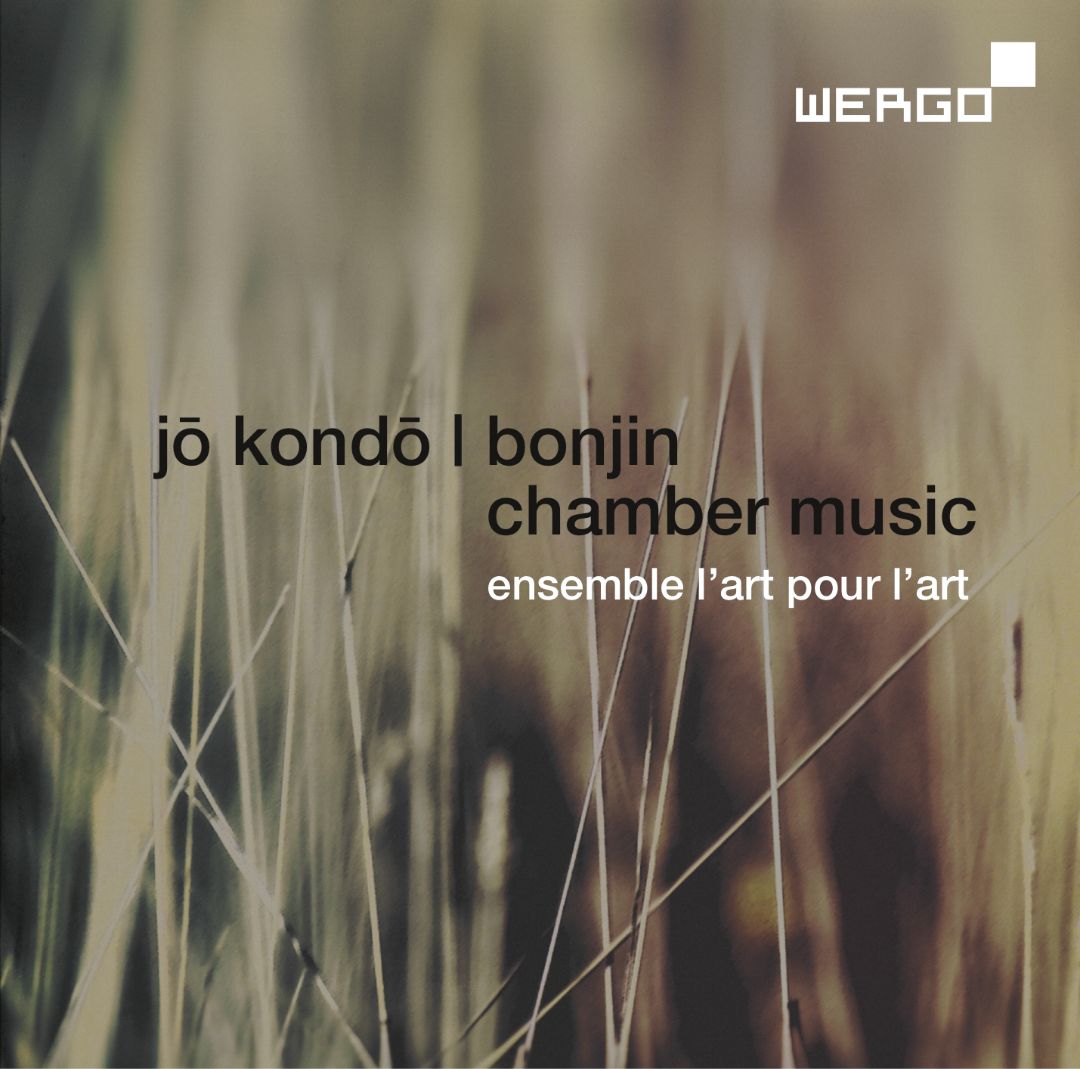Tokyo born (1947) Jo Kondo composes deliberately but intuitively, one note at a time. Like Cage's prepared piano pieces Kondo's music is, in his words, "organized somehow, but through that organization you can hear each individual note." The music has an almost ritual rhythmic regularity (even in its sometimes irregular regularity). It is a music not so much of color as of structure.
This we hear to our concentrated delight (or I do anyway) on the recent Bonjin, Chamber Music (Wergo 7342 2). Ensemble l'art pour art takes us idiomatically and artfully through nine chamber works that are hypnotic not necessarily through repetition, but through their facticity and presence, their singular being.
The music is neither tonal nor atonal, ultimately. It is pan tonal, I suppose you could say, filled with ambiguity, multi-centers or no centers in terms of key. The composer, the liner notes tell us, acts as a listener as he proceeds note-by-note, improvisatorily but conscious of his agency.
The result is a series of chamber works that have each an uncanny being, beginning with the titular "Bonjin" for female voice, alto flute and double bass, and onward to works for flute and piano, for mezzo-soprano and violin, for classical guitar, for mezzo-soprano and piano, for flute and guitar, for violin and piano, for flute and percussion, and for violin and percussion.
Each is a high modernist world unto itself, original in a self-less, self-ful consciousness-raising way.
It is an album of modernist purity, like no other.
Very recommended.

No comments:
Post a Comment